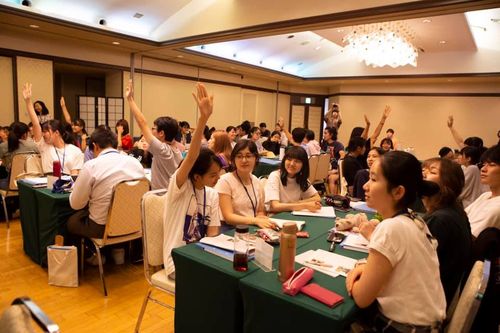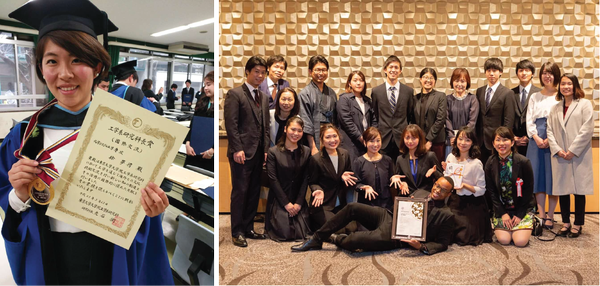Komatsu Summer School
Komatsu Summer School (KSS) is a 7-days liberal arts focused summercamp for high school students in Japan, run by university students around the world.
Founded in 2014, Komatsu Summer School (KSS) has had university students around the world planning and delivering summer schools in Komatsu, Ishikawa, each year to 60 high school students in Japan.
Recognizing the passiveness, and the lack of open conversations about future and career within the traditional high school curriculum in Japan, KSS decided to focus on opening doors to high school students about various academic focus and career options through a 7-day program.

Throughout the 7-day program,
- Participants attend seminars by university students about various topics that the university students had previously learnt about or conducted research on..
- We invite people working in different fields to talk about their careers and their values.
- United Nation University holds workshop about topics on the topic of SDGs.
- There are also programs that facilitate participants to explore what they value in their daily life, to help draw a blue print of their future.


KSS is run completely on a voluntary base.
Each year, an executive committee of around 40 university students from around the world (mainly Japan and the United States) forms to run the summer school that year through the processes of fundraising, recruiting participants, PR, and program planning and delivering.
The board of directors which is formed of people with career experience, are in charge of the long term planning of the organization.

I was a member of executive committee from 2014-2016, becoming head of the executive committee in 2016. I then became a member on the board of directors in 2017, and head of the board of directors in 2019.
As the head of the executive committee, not only did I run the year’s program successfully, but I also committed to making KSS a more sustainable organization.
Firstly, I was able to ensure several long-term funding resources. We were also able to do a crowdfunding campaign.
Secondly, I raised the awareness of the importance of open communication among staff members since they were all geographically distant from each other. I also utilized the tool Basecamp, which anyone had access to, to facilitate conversations around planning.
Last but not least, I focused on the perennial issue of non-Japanese-speaking staff members tend to not receive enough information and feeling left out during the program. Therefore, I initiated daily briefings with schedule and logistics in English printed out, making sure everyone was clear about not only their own responsibilities, but what others are working on.
 (KSS on NHK!)
(KSS on NHK!)
As the head of the board of directors, I was able to facilitate the decision to hold KSS 2020 online due to COVID-19.

On a more general level, I started initiatives to strengthen the alumni network. One of them is a KSS Alumni Night where alumni gathered over a Zoom call.
The first half of the event began with a panel discussion where 4 people affiliated with KSS talked about what they were up to in their career and daily life. I worked as the facilitator, asking questions to the panelists, while also collecting questions from the audience. In the later half, participants were put into breakout rooms where they were able to talk to each other about what they had been up to. According to the questionnaire, almost all of the participants were satisfied by the event because they got to reconnect with not only those who they were familiar with, but others who they didn’t know were also part of the community.
As a non-profit and voluntary based organization, KSS’s vision is not to expand its size on a tremendous level, but to successfully deliver the annual summer school with constant improvement, and to also enforce the alumni network so that participants can continue to feel connected and inspired through the community.

I received the Dean’s Award of the University of Tokyo, School of Engineering in 2016 for my work at KSS, and I was able to set an example as a student from a minority background (a Chinese national) by making an impact in the Japanese society.
KSS received the Japan Foundation‘s Global Citizen Award in 2018 for setting an example for how cross-border communications can be initiated in suburban cities in Japan, especially among the youth.
